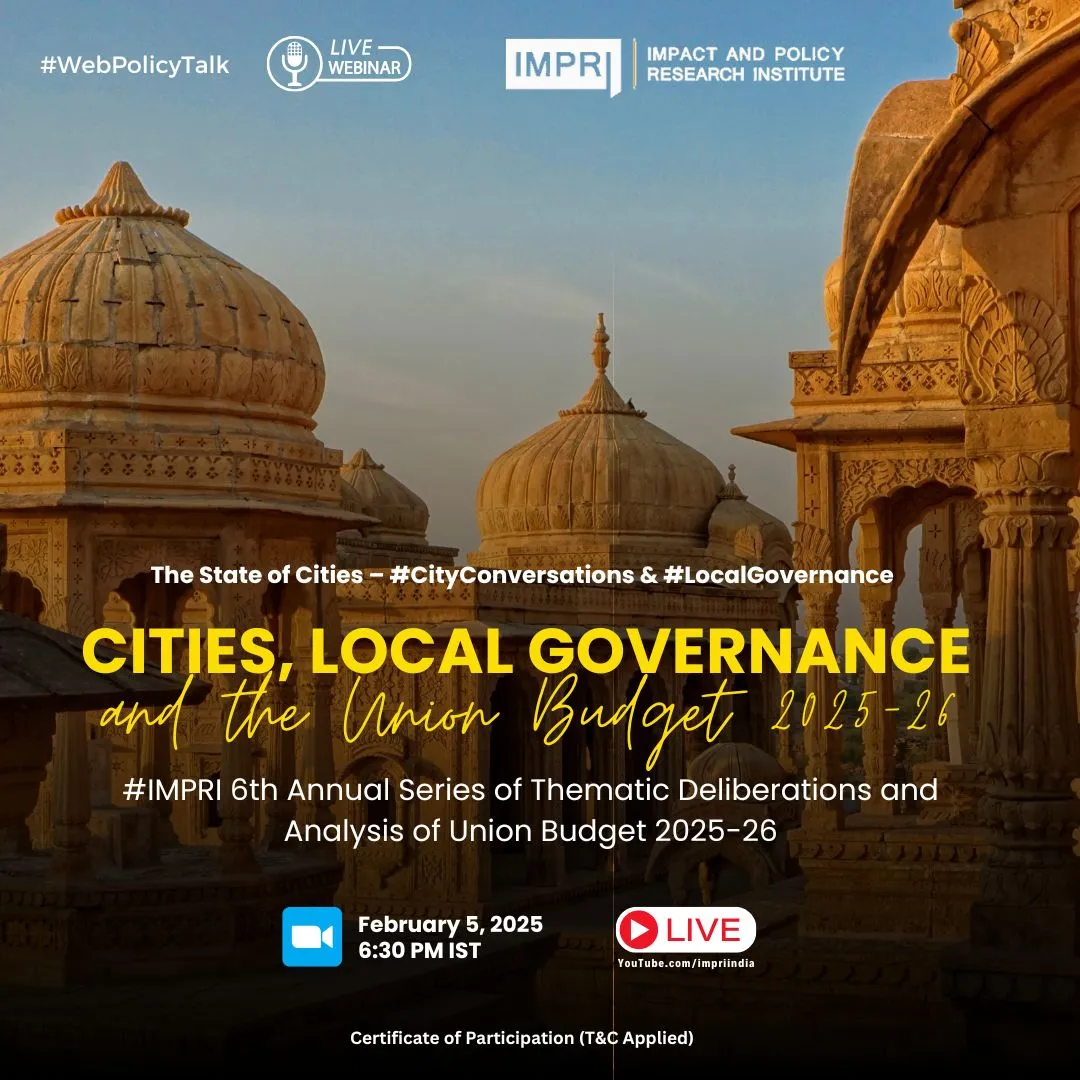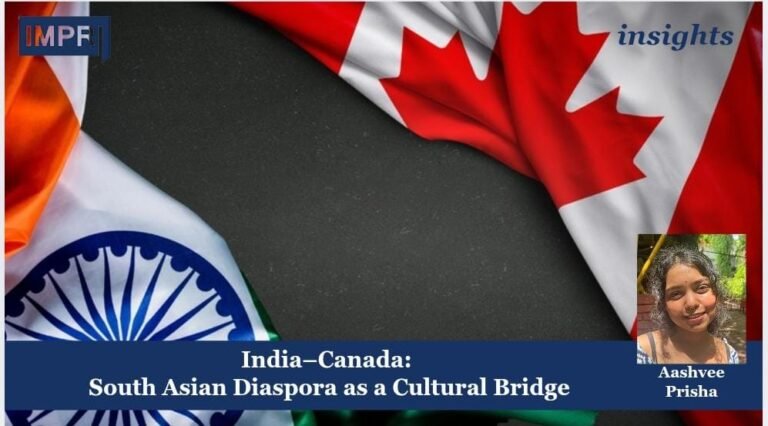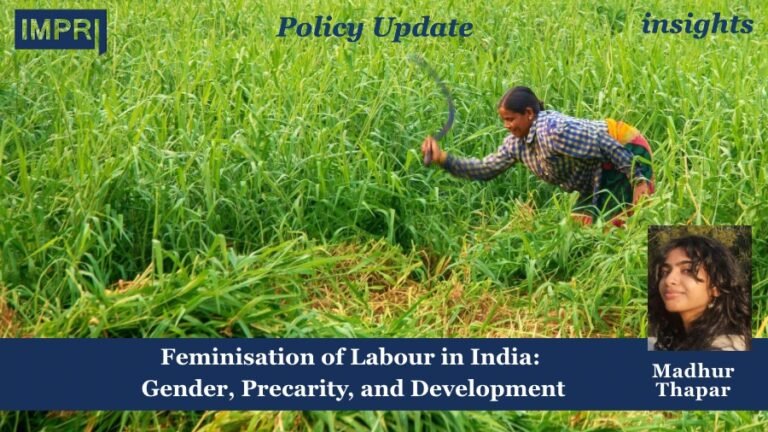Event Report
Deepankshi Agnihotry
Introduction
Dr Rumi Aijaz, Senior Fellow and Head of the Urban Policy Research Initiative at the Observer Research Foundation (ORF), New Delhi, chaired the session, marking the commencement of the panel discussion on IMPRI’s 6th Annual Series of Thematic Deliberations and Analysis of Budget 2025-2026 on Cities, Local Governance, and the Union Budget 2025-26. Organized by the Center for Habitat, Urban and Regional Studies (CHURS) at the IMPR, Impact and Policy Research Institute, New Delhi. This IMPRI #WebPolicyTalk series brought together esteemed panelists to analyze and critique the implications of the budget on urban development and governance.
Dr Aijaz highlighted that the Union Budget 2025-26 had recorded a 17% increase in urban development allocation compared to the previous year. He noted that the metro and real estate sectors had received the maximum allocation at 36%, followed by the Pradhan Mantri Awas Yojana (PMAY) at 24%, AMRUT at 10%, and the Swachh Bharat Mission at 5%. He also discussed the launch of PMAY 2.0, which introduced an Urban Challenge Fund worth INR 1 lakh crore and a new livelihood mission.
However, no allocations were made for the Smart Cities Mission. The Swachh Bharat Mission Urban retained a constant allocation of INR 5000 crore. Additionally, Dr Aijaz pointed out that the Finance Minister’s speech underscored key budgetary pillars, including taxation, power, urban development, mining, and financial regulation.
Following his remarks, Dr Aijaz invited the panelists to share their perspectives on the budget’s urban governance and development allocations, focusing on its effectiveness, opportunities, and challenges in fostering sustainable urban growth in India.
Panelist Views
Mr Tikender Singh Panwar, Former Deputy Mayor of Shimla and Senior Fellow at IMPRI, critically analyzed the Union Budget 2025-26, highlighting its shortcomings in fostering sustainable urban growth. He pointed out that the budget overlooked fundamental urban development schemes and made no mention of the Smart Cities Mission. Despite corporate profits reaching a 15-year high, he noted that wage rates have not seen a corresponding rise.
Mr Panwar emphasized that India’s urbanization is distinct from global trends, as it is driven more by poverty than by industrialization. He identified three key concerns:
- Declining Financial Support for Urban Local Bodies – Direct transfers to urban local bodies have shown a downward trend, especially when adjusted for inflation.
- Cuts in Housing and Infrastructure Funding – The Pradhan Mantri Awas Yojana (PMAY) saw a 13% reduction in funds, while allocations for AMRUT (Atal Mission for Rejuvenation and Urban Transformation) decreased from INR 10,400 crore to INR 10,000 crore.
- Prioritization of Metro Projects – Under the Center Sector Scheme, metro projects received a significant boost of INR 3,000 crore.
He also strongly criticized the Urban Challenge Fund, questioning the tangible asset creation from previous initiatives like the Smart Cities Mission. Citing Shimla’s experience, he highlighted the failure of the public-private partnership (PPP) model, where an anticipated INR 1,000 crore investment did not materialize. Similarly, he expressed skepticism about the feasibility of raising INR 50,000 crore through municipal bonds, given the lack of investor interest.
Advocating for a more inclusive and effective approach to urban development, Panwar called for greater decentralization of funds, stronger devolution of power to urban local bodies, robust employment strategies, and people-centric policies to drive sustainable and equitable growth.
Professor Mahalaya Chatterjee, Professor, Centre for Urban Economic Studies, Department of Economics, University of Calcutta; Visiting Professor, IMPRI analyzed the Union Budget 2025-26 with a focus on governance, urban land, and planning—key aspects highlighted in the Finance Minister’s speech. She raised concerns about the implementation of incentives for states, given that urban development falls under the jurisdiction of state governments. Additionally, she noted that the absence of a recent census makes it difficult to accurately assess the pace and nature of urbanization, particularly in the post-COVID era.
Aligning with Mr Panwar’s views, she criticized the Urban Challenge Fund, stating that it primarily benefits major cities while neglecting census towns and smaller urban centers. She also expressed concerns about cities like Varanasi, Surat, and Visakhapatnam, which, she argued, are losing their cultural heritage under the guise of urban development.
Regarding water and sanitation, she pointed out that water pricing remains a contentious issue, as most states have avoided discussions on pricing norms. She also highlighted the weak private sector participation in urban projects, attributing it to profit-driven motives that often conflict with social needs.
While she praised the National Geospatial Mission for its potential to modernize land records, she questioned its practical implementation, noting that the budget did not address this aspect. Similarly, she acknowledged the boost for tourism in the budget but flagged concerns about the lack of investments in skilling and human capital development at the local level.
Finally, she underscored the growing challenges in waste management, particularly in hilly areas where increasing tourism has disrupted natural drainage systems, exacerbating environmental concerns.
Professor Chetan Vaidya, Visiting Distinguished Professor, IMPRI; Independent Urban Advisor; Former Director, School of Planning and Architecture (SPA), New Delhi and National Institute of Urban Affairs (NIUA), New Delhi; Independent Director, GIFT City, Gandhinagar offered a mixed assessment of the Union Budget 2025-26. He praised the tax-free extension for GIFT City until 2030, highlighting its potential to drive green development and collaborative urban centers.
However, he was critical of the Urban Challenge Fund and expressed relief that the Smart Cities Mission did not receive further allocations, arguing that it was implemented through Special Purpose Vehicles (SPVs) that bypassed local governance. He also voiced disappointment over the government’s disregard for recommendations from the Keshav Verma Committee report, which focused on urban space refinement.
Overall, Prof.Vaidya characterized the budget as exclusionary, stating that it failed to address key urban challenges and missed an opportunity for a more inclusive and effective urban development strategy.
Professor Tathagat Chatterjee, Professor of Urban Management and Governance, Xavier University, Bhubaneswar, expressed disappointment with the Urban Challenge Fund, describing it as a tech-driven, capital-intensive approach with limited effectiveness at the local level. While acknowledging its goal of fostering self-sufficiency among urban local bodies, he pointed out that fundraising is largely dependent on city credit ratings, making it difficult for many cities to access funds. Additionally, he noted that municipal bonds face a limited market, particularly during economic downturns.
He highlighted three key aspects of the Urban Challenge Fund:
- City Growth Hubs – Intended to drive urban expansion and economic activity.
- Creative Urban Remuneration – A concept that remains unclearly defined in the budget.
- Water and Sanitation – While PPP investments in this sector show promise, implementation challenges persist.
Prof.Chatterjee appreciated the digitization of land records, citing the success of Odisha’s JAGA Mission, and welcomed the rejuvenation of the National Urban Digital Mission. However, he emphasized the need for an integrated command and control center and greater transparency regarding assets created under the Smart Cities Mission.
Regarding metro projects, he observed that while they received significant funding, they remain costly and struggle with passenger footfall, even in major cities like Mumbai, Bangalore, and Lucknow. He also questioned the viability of metro expansion in smaller cities like Gorakhpur, raising concerns about financial sustainability and demand.
Mr Sameer Unhale, Visiting Senior Fellow at IMPRI and an urban expert, offered a more optimistic perspective on the Union Budget 2025-26. He welcomed the increase in allocations for the Ministry of Housing and Urban Affairs, which rose from INR 9,000 crore to INR 9,677 crore.
He supported the Urban Challenge Fund, viewing it as a crucial step toward financial modernization of municipalities and urban local bodies. He emphasized the need for urban local bodies to become less dependent on the central government, advocating for greater professionalism and financial independence in urban governance.
Mr. Unhale also praised the increase in the PM SVANidhi credit limit to INR 30,000, highlighting its potential to benefit a large number of small vendors and entrepreneurs. Additionally, he backed creative city remuneration and city growth hubs, arguing that modernization is essential to overcoming bureaucratic inefficiencies and red tape.
He underscored the evolving role of cities as engines of economic growth, supporting bankable property and asset monetization strategies as progressive measures. However, he acknowledged that effective execution, climate budgeting, and SDG-focused budgeting are critical to ensuring the success of these initiatives.
Conclusion
The session concluded with a unanimous call for greater inclusion of the poor in national urban strategies and a stronger integration of urban challenges with climate change concerns. Experts agreed on the critical role of infrastructure development, particularly for electric vehicle charging networks, to fully leverage the incentives provided in the budget.
Dr Rumi Aijaz closed the discussion by emphasizing two key priorities for effective urban governance:
- Ensuring the proper allocation and utilization of funds by executive agencies.
- Strengthening the capacity of local bodies to address the needs of a rapidly urbanizing India.
He highlighted that these measures align with the vision of “Sabka Saath, Sabka Vikas, Sabka Vishwas, Sabka Prayas”, reinforcing the need for inclusive and sustainable urban growth.
IMPRI’s 6th Annual Series of Thematic Deliberations and Analysis of Union Budget 2025-26
IMPRI’s 6th Annual Series of Thematic Deliberations and Analysis of Union Budget 2025-26
Cities, Local Governance and Union Budget 2025-26
Acknowledgement: This article is written by Deepankshi Agnihotry, a research intern at IMPRI who holds a postgraduate degree in Electronics, and is curious and passionate about sustainability and impactful policy solutions.




